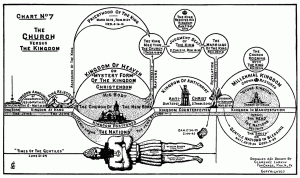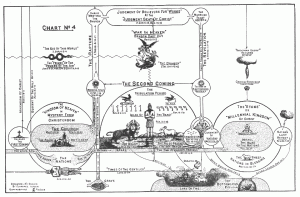How are we to reconcile new neuroscience findings on the addicted brain with a theology of the Christian mind and sin?
Neuroscience is discovering some very interesting findings about brain function in regards to natural, process addictions. It has been noted that brain change occurs in substance abuse addictions, but new research is revealing the same changes happen in the frontal cortex of persons with sex and pornography addictions, food addictions and gambling addictions.
In 2002, a study on cocaine addiction demonstrated measurable volume loss in several areas of the brain, including the frontal lobes. In 2007, a VBM study out of Germany demonstrated almost identical finding to the cocaine, methamphetamine, and obesity studies. It concludes for the first time that a sexual compulsion can cause physical, anatomic change in the brain, the hallmark of brain addiction. A preliminary study showed frontal dysfunction specifically in patients unable to control their sexual behavior. This study used diffusion MRI to evaluate function of nerve transmission through white matter. It demonstrated abnormality in the superior frontal region, an area associated with compulsivity.
Hilton DL, Watts C. Pornography addiction: A neuroscience perspective. Surg Neurol Int [serial online] 2011 [cited 2012 Mar 22];2:19. Available from: http://www.surgicalneurologyint.com/text.asp?2011/2/1/19/76977
Of course there are detractors. David J. Ley wrote a recent piece in the New York Times, calling sexual addiction a myth. However, he stands against most of the scientific community in this regard.
The Affects of The Fall on Our Brains
If a biological component to addiction can be shown to be present, does it alleviate our culpability or responsibility for sinful behavior? You and I were not present at the Fall (Genesis 3), but we do know that something devastating happened to ALL of creation that day.
One consequence of the fall of man is the so-called “curse on creation,” described in Genesis 3:17-19. Since life and blessing come from God, and God inhabits the spiritual realm, earth’s reduced fecundity after the fall can be thought of as a disruption of the power flow of the sustaining energy of the spiritual realm into the physical realm of our “two-storied” universe. In some way we do not yet understand the fecundity of nature was reduced by these curses, indicating a reduction of sustaining power from God into the physical creation. Opportunistic weeds, bugs, diseases and maladies are some of the results.
Paul describes this fall of the physical material universe:
For the creation waits with eager longing for the revealing of the sons of God. For the creation was subjected to futility, not willingly, but because of him who subjected it, in hope that the creation itself will be set free from its bondage to corruption and obtain the freedom of the glory of the children of God. For we know that the whole creation has been groaning together in the pains of childbirth until now.
(Romans 8:19-22 ESV)
This effect of the Fall on the physical world surely involves our material bodies. While we have a “mind,” let us not forget that what houses that mind is a physical organ called the brain. And that material brain experienced the ramifications of the curse of Adam’s sin. We see a glimpse of this transpiring over time when Paul writes:
And since they did not see fit to acknowledge God, God gave them up to a debased mind to do what ought not to be done. (Romans 1:28 ESV)
The Christian Mind
Yet having a brain wired for addiction does not grant a free pass for the responsibility or consequences of sin any more than possessing a gun and a spastic finger makes it okay to murder. If I know I have a gun and a spastic finger, I must take extra precautions to make sure said finger never gets inside the trigger guard. While it is sometimes tempting to for me to say, “Well, God, you made me this way,”–or in its more polite and respectable form, “God, why did you make me this way?”– this is an entirely unhealthy attitude even though God is powerful enough that such an accusation doesn’t knock him off His throne.
There is a biblical insight given to the fact that is possible to set our minds on the things of God:
For to set the mind on the flesh is death, but to set the mind on the Spirit is life and peace. (Romans 8:6, ESV)
Do not be conformed to this world, but be transformed by the renewal of your mind… (Romans 12:2, ESV)
… take every thought captive to obey Christ (2 Corinthians 10:5, ESV)
Finally, brothers, whatever is true, whatever is honorable, whatever is just, whatever is pure, whatever is lovely, whatever is commendable, if there is any excellence, if there is anything worthy of praise, think about these things.
(Philippians 4:8 ESV)
While it may be more difficult to do this with a brain that is hardwired for addiction, it does not make it impossible. And God never promises us an equal playing field with others. The Fall damaged different people in different ways, sexual addiction and other addictions being merely one manifestation. Through the indwelling of the Holy Spirit we are given the power to overcome the flesh, yes even flesh that involves a fallen mind.
But I say, walk by the Spirit, and you will not gratify the desires of the flesh. For the desires of the flesh are against the Spirit, and the desires of the Spirit are against the flesh, for these are opposed to each other, to keep you from doing the things you want to do. (Galatians 5:16-17 ESV)
No matter what neuroscience discovers–and I am highly interested in this–the ability to overcome the power of addiction in my life, while challenging, is available in Christ through the Holy Spirit.



